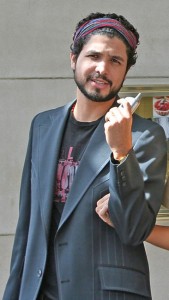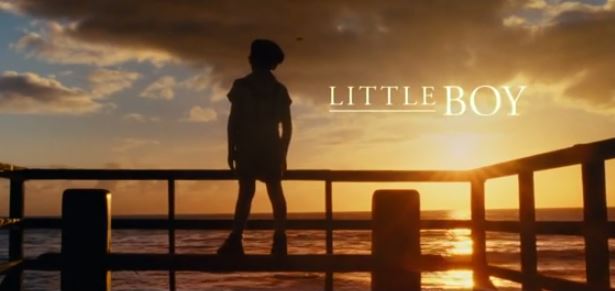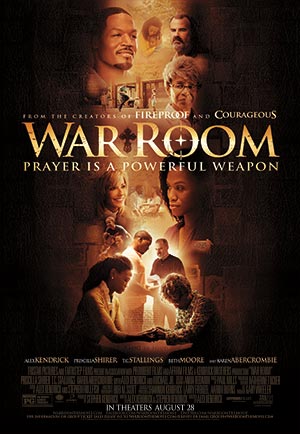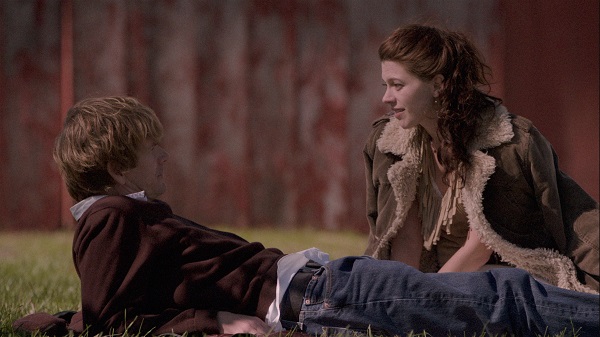“At the end of ‘Schindler’s List’, you saw Schindler crying. Asked why, he explained that he could have sold his car and saved one more. He had saved so many Jews from extinction, and yet he felt guilty he had not done more.
I asked myself: ‘What am I doing for others? Am I doing all I can?’ “
–Alejandro Monteverde
Alejandro Monteverde is writer, producer and director of the new film LITTLE BOY, which opens in theaters across America on Friday, April 24. Monteverde talked with me last week–a rambling interview in which he shared his feelings about the film, about working with the young Jakob Salvati, and about Schindler’s List, the World War II drama which inspired him to tell stories that matter, and to make films which help to make the world a better place.
STORIES THAT MATTER

Monteverde was a student in film school when he first saw Schindler’s List, and he resolved to use his talents to produce films which evoke questions. “Right now,” he explained,
“…we are often being entertained by things that don’t really matter. My whole goal is to tell stories that really matter, to explore the goal of humanity.
St. Francis of Assisi said, ‘Go into the world and preach the gospel, and if necessary, use words.’ For me, a picture is more than words.”
As an example of this principle, Monteverde reminded me of the scene in LITTLE BOY in which Father Oliver (Tom Wilkinson) is explaining to the little boy, Pepper Flynt Busbee (Jakob Salvati), that God’s power can move mountains. “I moved the bottle because you made me move it,” Father Oliver says, “but He [God] is the mover.” Monteverede’s goal as the film’s writer and director, then, is not to hit people over the head; instead, he hopes to expose and explore the idea of faith through the eyes of a little boy.
Society continually tells us, Monteverde explained, that everything is impossible–that we may as well just give up. He wanted to counter that hopelessness by creating the ultimate underdog story. Children, he said, are the ultimate underdogs: They have limited resources and are powerless against problems like parents getting a divorce, a father who goes off to war. Young Pepper Flynt Busbee is seemingly powerless; but he has the power of faith. It’s that faith which Little Boy uses to bring his father safely home from the war.
MOVING THE MOUNTAIN
In LITTLE BOY there is a scene in which Pepper extends his hands in faith, and a mountain moves. “Did he really move the mountain?” the viewer wonders. “Or was it an earthquake?” The scene is intentionally ambiguous, and Monteverde allows his audience to decide for themselves. Monteverde himself , in our conversation, drew a parallel to his own attitude while making the film: “Some days,” he said,
“…when everything was going well and the movie was moving forward, I felt that I could move mountains. But on other days, it seemed impossible that the movie could ever be made. I worried that we didn’t have enough money, didn’t have the studio support we needed. On those days, moving the mountain seemed an impossibility.”
WORKING WITH YOUNG JAKOB
In casting the pivotal role of young Pepper Flynt Busbee, Monteverde saw more than a thousand kids from around the world. He understood that he could make mistakes in filming, but that he couldn’t afford to make a mistake in casting the child who would play Pepper. He is the heart of the film, and Monteverde sought a child actor with a very strong heart.
Monteverde had already cast another boy in the lead role when he met Jakob. “That is the miracle,” Monteverde said. “I couldn’t explain it–but I wanted him.” Typically, when casting a child in a starring role, one seeks a child who is three or four years older than the part–so a boy of 10 or 11 would have been chosen to play the role of an eight-year-old. An older child is more mature and is better able to understand the project. But Jakob, when Alejandro first met him, was six years old (approaching his seventh birthday), and needed to play a boy of eight or nine. Also, Jakob had never been in a film in his life–and he didn’t really understand the film. But despite the misgivings of the producers and directors, Alejandro saw in young Jakob a charisma that the audience could connect with.
At first, Monteverde admitted, things didn’t go well. Jakob was not an experienced actor and was not prepared. But the second time, Jakob did very well. Monteverde was able to help him understand the emotion he needed to portray: “What kind of sadness?” Jakob asked. “Sad like when I’ve lost a toy? Or sad like when my mother is mad at me?”
One particularly heartwarming story he told me was of how he’d sometimes lose track of young Jakob on the set. “Where’s Jakob?” he’d ask–and then he’d find the little boy somewhere on the set, on his knees praying.
MONTEVERDE’S NEXT PROJECT: ON THE EXISTENCE OF EVIL
I asked Alejandro about his next project: Is he working on another film, now that LITTLE BOY is about to open in theaters?
Yes, he told me, although his next film doesn’t yet have a title. In the new script, he explores the origins of evil. “All you have to do is turn on the TV,” he explained, “and you see mankind doing terrible things to mankind. What inspires people to commit these terrible crimes? Right now there is a different kind of evil out there.” As evidence, he cited the drug cartels in his own country of Mexico. Their hearts are desensitized, so that they are able to kill without regard for others.
“For me,” he said, “it is important that the viewer continues to process the film, the think about it after he leaves the theater.”
HELP LITTLE BOY SUCCEED AT THE BOX OFFICE
Alejandro had invested so much of his resources into this film, and he described it as a David and Goliath effort. Metanoia Films, the company he co-founded with Eduardo Verastegui, hasn’t the resources of a larger Hollywood film company to promote the film.
“You won’t see a billboard advertising LITTLE BOY,” he said, so the only way it will succeed against big box office films with marketing dollars behind them is if viewers will spread the word. Use social networks, he asked; if you see the film and you like it, please tell your friends.
LITTLE BOY opens Friday, April 24 in theaters everywhere.












